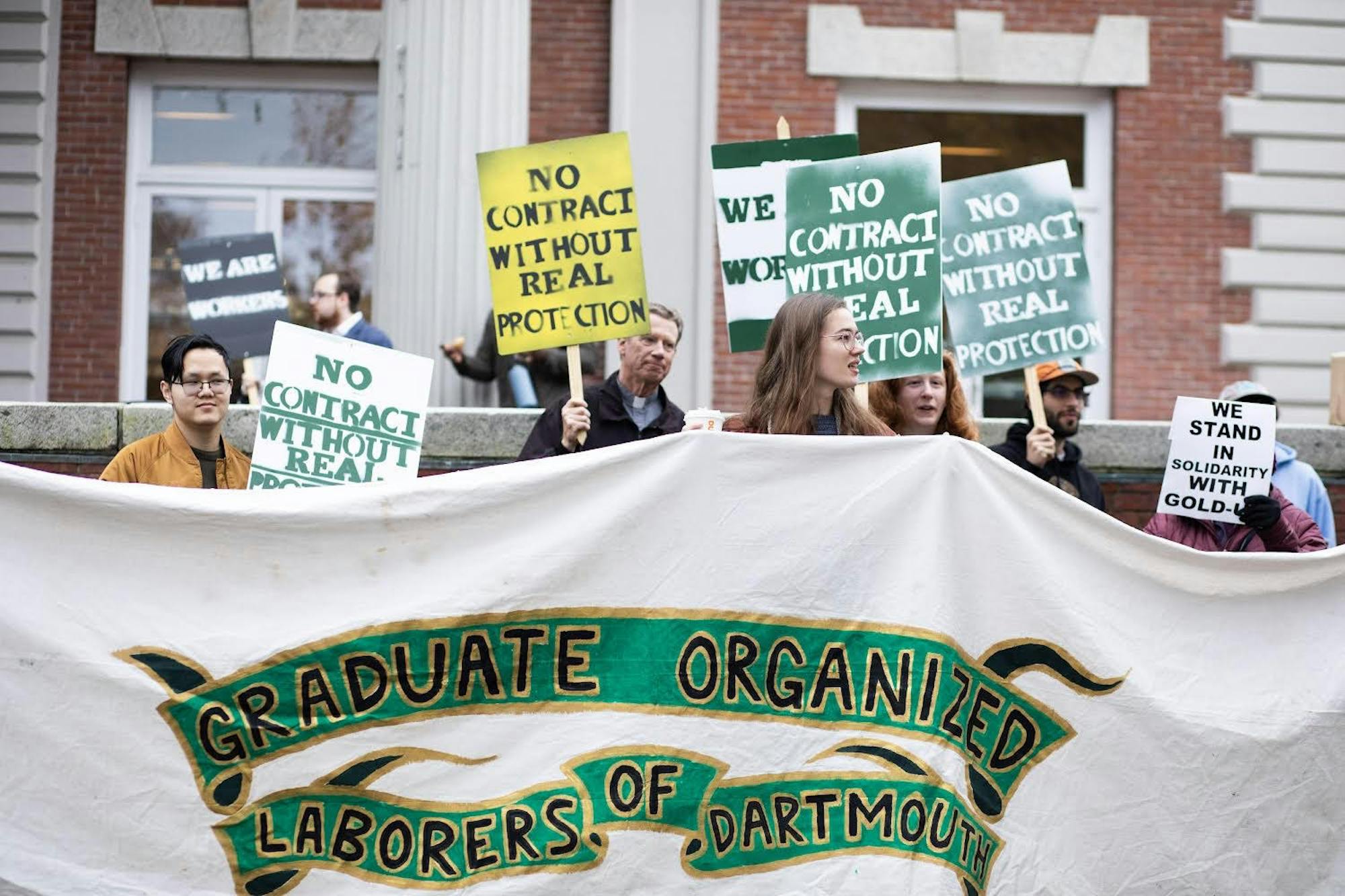On June 24, Dartmouth and Graduate Organized Laborers of Dartmouth-United Electrical Workers, the College’s graduate student workers’ union, reached a tentative agreement for a three-year contract, College Provost David Kotz announced in an email to graduate students. The agreement follows a nearly two-month graduate student strike initiated on May 1 to advocate for higher pay, improved medical benefits and other demands.
According to a June 27 post on GOLD-UE’s Instagram account, the tentative contract offers changes such as free dental coverage, paid medical leave up to $4,700, a $47,000 graduate stipend with a minimum 3% increase, a consumer price index — or “a measure of the average change overtime in the prices paid by urban consumers for a market basket of consumer goods and services,” according to the U.S. Bureau of Labor website — cost-of-living adjustment, revised dependent premium support, stipend support for parents with children under six-years-old and other benefits.
“We believe that our contract is, in all likelihood, one of the leading contracts in higher [education],” GOLD-UE member Logan Mann, a fourth-year Ph.D student at the Thayer School of Engineering, said.
Benefits such as the $47,000 stipend and paid medical leave are “historic firsts” in higher education, Mann added.
In his email, Kotz elaborated on several of the tentative contract’s offerings. For example, he wrote that the College will establish a $125,000 Student Employee Support Fund and a $75,000 Student Employee Dependent Support Fund, both increasing by $10,000 annually.
Kotz added that clauses regarding union security, management rights, a no-strike/no-lockout policy, employee assistance and compensation all remain unchanged from the most recent bargain update made by the Office of the Provost on June 4. The College previously agreed to GOLD-UE’s proposal for a “closed shop,” in which “graduate students would be required to join the union and pay dues as a condition of employment,” according to Kotz’s email and a bargaining update posted to the Office of the Provost’s website on June 6. The new agreement also carries over the stipulation that throughout the duration of the contract, GOLD-UE members are not permitted to engage in strikes or work slowdowns and the College cannot lock union members from labs or classrooms to prevent them from working.
Members of GOLD-UE can vote to ratify the new contract via ballots that will be sent through email from June 26 to June 28, according to GOLD-UE’s official website. The organization will hold two informational sessions — on June 27 at 5 p.m. and June 28 at 3 p.m. — in Rett’s Room in the Thayer School of Engineering and on Zoom to “help members make informed decisions,” according to the GOLD-UE Instagram post.
According to the same Instagram post, the organization plans to keep pushing for more benefits — including rent-based cost-of-living adjustments, increased starting stipends, back pay, a commitment to no retaliation by the College, full dependent premium coverage, the right to unfair labor practice strikes and the right to not cross picket lines.
“We definitely didn’t win everything,” Mann said. “We still are going to have to organize for 100% premium coverage, as well as rent-based cost of living adjustments in the future. … But we’re really, really happy with where the contract landed.”
Correction Appended (June 28, 1:25 p.m.): A previous version of this article stated that the tentative contract would increase the Student Employee Support Fund and Student Employee Dependent Support Fund by $10,000 annually. The contract would both establish and increase the funds. The article has been corrected. The article also previously attributed language regarding the “closed shop” to Kotz’s email. Information also came from an earlier bargain update posted on the Provost’s website. An additional attribution has been added for clarity.




